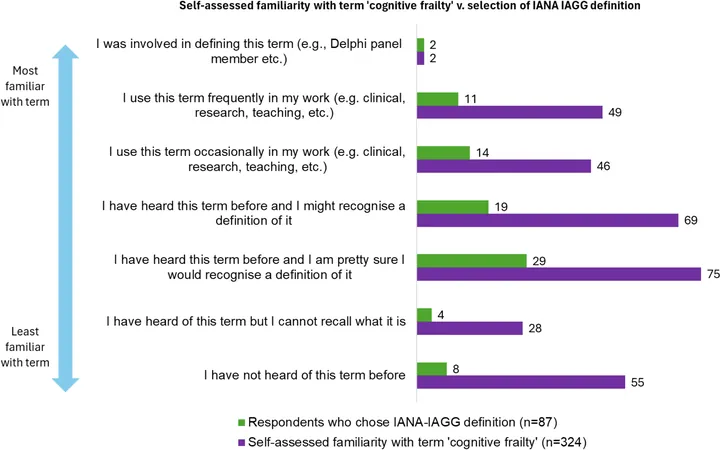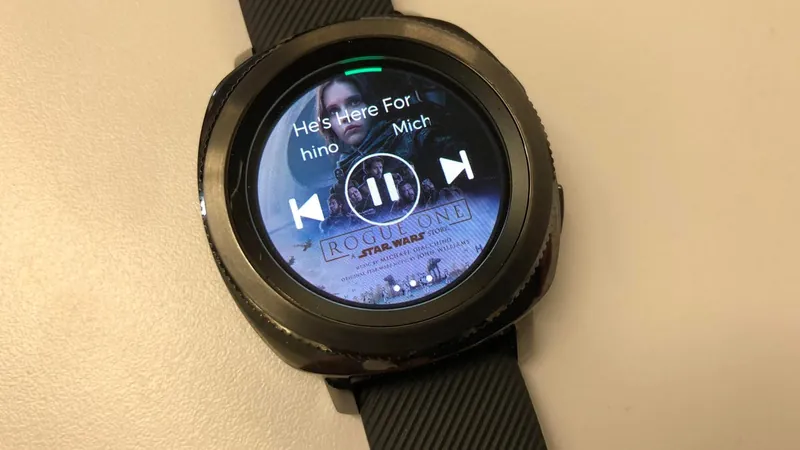
Cognitive Frailty: A Concept in Crisis? European Geriatricians Weigh In!
2025-04-25
Author: Arjun
Unpacking Cognitive Frailty
What exactly is 'cognitive frailty'? This intriguing yet controversial term, first defined by the International Academy on Nutrition and Aging (IANA) and the International Association of Gerontology and Geriatrics (IAGG) back in 2013, combines elements of both physical frailty and mild cognitive impairment. But does it mean the same to everyone? A recent survey of European geriatricians suggests otherwise.
The Survey Breakdown
Conducted online, the survey gathered insights from 440 geriatric clinicians across Europe, predominantly female and largely from Western nations. While many participants firmly believed in the significance of cognitive frailty, only a mere 25% embraced the formal IANA-IAGG definition. Alarmingly, nearly two-thirds of these professionals employed the term in their daily work without aligning their understanding with the established definition.
Mixed Reactions to the Definition
After being presented with the IANA-IAGG definition, just 44% of the respondents strongly supported it. Some deemed the definition too narrow for excluding conditions like delirium and dementia, while others felt it was too broad by including physical frailty. This lack of consensus reveals a growing confusion around cognitive frailty among geriatricians, highlighting an urgent need for clarity in the clinical context.
A Call for Cohesion in Care
This disparity in understanding raises critical questions about patient care. Cognitive and physical frailties frequently coexist, contributing to a cycle of decline. Yet, this study demonstrates how divergent definitions may hinder effective communication and treatment strategies among healthcare providers.
The Historical Roots and Future Directions
The term 'cognitive frailty' emerged from early studies on cognitive function and has since evolved with multiple proposals to broaden the definition. Some experts now suggest integrating social, nutritional, and psychological factors as necessary components. However, the crux remains: is the IANA-IAGG definition an effective tool or just another layer of complexity?
Looking Ahead: The Need for Further Research
As research linking physical frailty and cognitive impairment surges, there’s an increasing call for rigorous studies to evaluate the clinical implications of this interrelationship. Can clearer definitions lead to better health outcomes for older adults? The global geriatric community must unite to clarify this pivotal concept and enhance the understanding and application of cognitive frailty in everyday practice. Without a unified front, we risk misleading the very patients we aim to serve.




 Brasil (PT)
Brasil (PT)
 Canada (EN)
Canada (EN)
 Chile (ES)
Chile (ES)
 Česko (CS)
Česko (CS)
 대한민국 (KO)
대한민국 (KO)
 España (ES)
España (ES)
 France (FR)
France (FR)
 Hong Kong (EN)
Hong Kong (EN)
 Italia (IT)
Italia (IT)
 日本 (JA)
日本 (JA)
 Magyarország (HU)
Magyarország (HU)
 Norge (NO)
Norge (NO)
 Polska (PL)
Polska (PL)
 Schweiz (DE)
Schweiz (DE)
 Singapore (EN)
Singapore (EN)
 Sverige (SV)
Sverige (SV)
 Suomi (FI)
Suomi (FI)
 Türkiye (TR)
Türkiye (TR)
 الإمارات العربية المتحدة (AR)
الإمارات العربية المتحدة (AR)